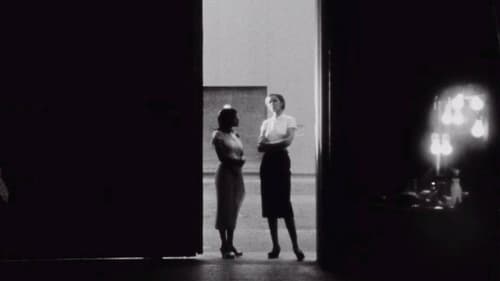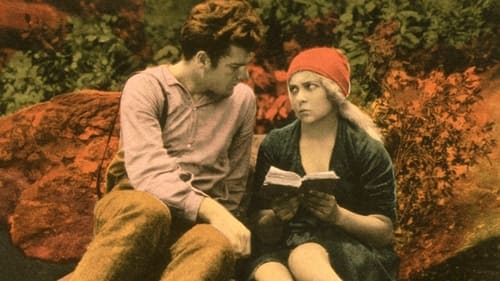Condition of Illusion (1975)
Gênero :
Runtime : 32M
Director : Peter Gidal
Sinopse
The practice of Structural/Materialist Film is defined in...process, construction, displaced reflexively...not displaced uniformly into the pattern of a narrative bound up for the stable subject-centred image. Structural/Materialist film has no place for the look, ceaselessly displaced, outphased, a problem of seeing, it is anti-voyeuristic.

Documentary short film showing the production of cars at a Chevrolet factory in the mid 1930s.

A woman in a Hollywood dubbing studio struggles with race and preconceptions.

A Greek documentary by Takis Kanellopoulos about wedding traditions in western Greece and Macedonia. It was filmed in the village of Velvendo.

WWI comes to a small Serbian village of Kumodraz, disturbing its residents' quiet life.

This film documents the life of a family of brick makers in the outskirts of Bogotá, using the personal experience of the Castañeda family to expose the exploitation of manual laborers. Marta Rodríguez and Jorge Silva worked on this documentary from 1966 to 1972, establishing a relationship with the family which allows the viewer an intimate look at their hardships.

An industrial film which shows the operations inside the Philips Radio plant: In a mêlée of activity, glassblowers make delicate glass bulbs. Machinery assists the bulb manufacture. A virtuoso glassblower begins a more complex tube used in radio broadcasting; it is then turned, fired, and sculpted. Conveyors carry partially completed units. Workers perform their various specific assembly-line tasks. Cases are manufactured and machined, wire harnesses are assembled, loudspeakers are produced. As radios near completion, they are run through a series of tests. Engineers and draughtsmen define future developments. In a closing stop-motion sequence, in a style reminiscent of Norman McLaren, a group of loudspeakers performs a playful dance. The film overall is a poetic depiction of an industrial process.

A documentary on the miracle which took place in the Usturt Mountains which is now a holy shrine where people go to worship.

Documentary showing the life of children of the Afghan villages bordering Iran, and how their life and culture were affected by Taliban regime.

This spoof of 'Apocalypse Now' has health inspector Will Dullard travelling by car "uptown" with two friends to have a meeting with a certain Mertz, the owner of a meat processing shop, to "investigate with extreme prejudice."

This short 1966 documentary dedicated "to all victims of intolerance” depicts the dawn of skateboarding in Montreal. A new activity frowned upon by police and adults, skateboarding gave youngsters a thrilling sensation of speed and freedom. This film - the first Canadian documentary ever made about the sport - captures the exuberance of boys and girls having the time of their lives in free-wheeling downhill locomotion.

A couple is conflicted when they are offered a chance at youth. Based on John Collier's short story “Youth from Vienna”.

A young jet pilot fighter Quim has great difficulty accepting that his recently born child is disabled. His mother advises him to see a witch doctor, but Quim refuses. Instead he looks for his former mistress Djamila. His mind is completely confused and he no longer can distinguish reality from fantasy. A metaphor of Angola after its independence.

A child explores her changing relationships with friends in an industrial town.

A man plays fetch with his dog, only to have both him and his dog mired in a series of optical illusions.

Soviet documentary about the defeat of the Nazis near Moscow. Warning - graphic images. Edward G. Robinson narrates the English language version.

An animated documentary short made by people with autism.

Stop Look and Listen is a 1967 sort comedy film written, directed by and starring Len Janson and Chuck Menville. It was mostly filmed in Griffith Park in pixilation [stop-motion photography].The film generates comedy by contrasting the safe and dangerous styles of two drivers who drive in the way made famous by Harold Lloyd: by sitting in the street and seeming to move their bodies as though they were automobiles. The film was nominated for an Oscar for Best Short Subject, Live Action.

Lettre d’un cinéaste à sa fille is a playful, free and personal film in the form of a letter, a film interwoven with a thousand stories knit together with different textures, a book of images where a filmmaker shows the images and the stories he wants to share.

The updated autobiography of Britain’s most controversial film director, the maker of Women in Love, The Devils, The Music Lovers, Tommy and The Rainbow, is as unconventional and brilliant as his best films. Moving with astonishing assurance through time and space, Russell recreates his life in a series of interconnected episodes – his thirties childhood in Southampton, his first sexual experience (watching Disney’s Pinocchio), his schooldays at the Nautical College, Pangbourne, early careers in the Merchant Marine and the Royal Air Force, dancing days at the Shepherds Bush Ballet Club and of course his career as a film-maker, beginning with an extraordinary interview with Huw Weldon for a job on Monitor. Full of marvellously funny anecdotes and fascinating insights into the realities of the film director's life, A British Picture is a remarkable autobiography.

"Man is absolute ruler. Woman is working slave.” Such are the rigid attitudes framing this tale of a country boy’s beliefs about chivalry that lead him to try to escape a brutal father with the girl he loves





